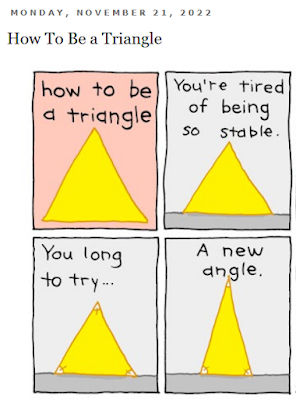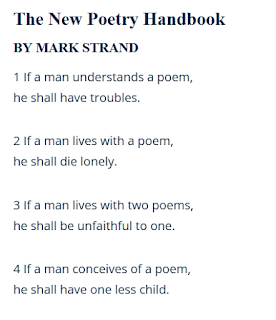In the sonnet below, Edwin Arlington Robinson (1869-1935) speaks of the enslavement of a writer of poetry in the effort to explain ideas in a perfect form . . . an enslavement perhaps (or not) also shared by mathematicians. Food for thought!
SONNET by Edward Arlington Robinson The master and the slave go hand in hand,
Though touch be lost. The poet is a slave,
And there be kings do sorrowfully crave
The joyance that a scullion may command.
But, ah, the sonnet-slave must understand
The mission of his bondage, or the grave
May clasp his bones, or ever he shall save,
The perfect word that is the poet's wand.
The sonnet is a crown, whereof the rhymes
Are for Thought's purest god the jewel-stones;
But shapes and echoes that are never done
Will haunt the workshop, as regret sometimes
Will bring with human yearning to sad thrones
The crash of battles that are never won.
From Robinson's COLLECTED POEMS: THE CHILDREN OF THE NIGHT, CAPTAIN CRAIG (Macmillan, New York, 1915)










